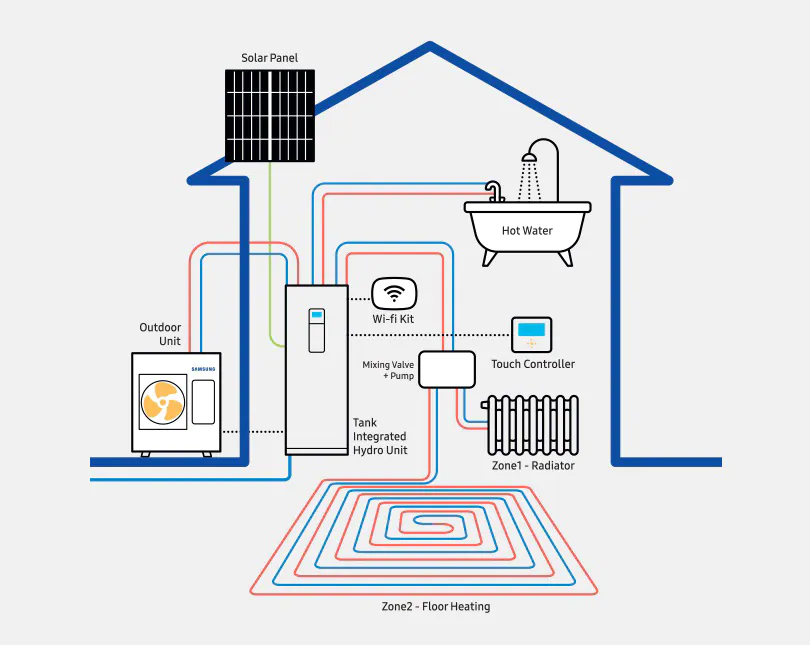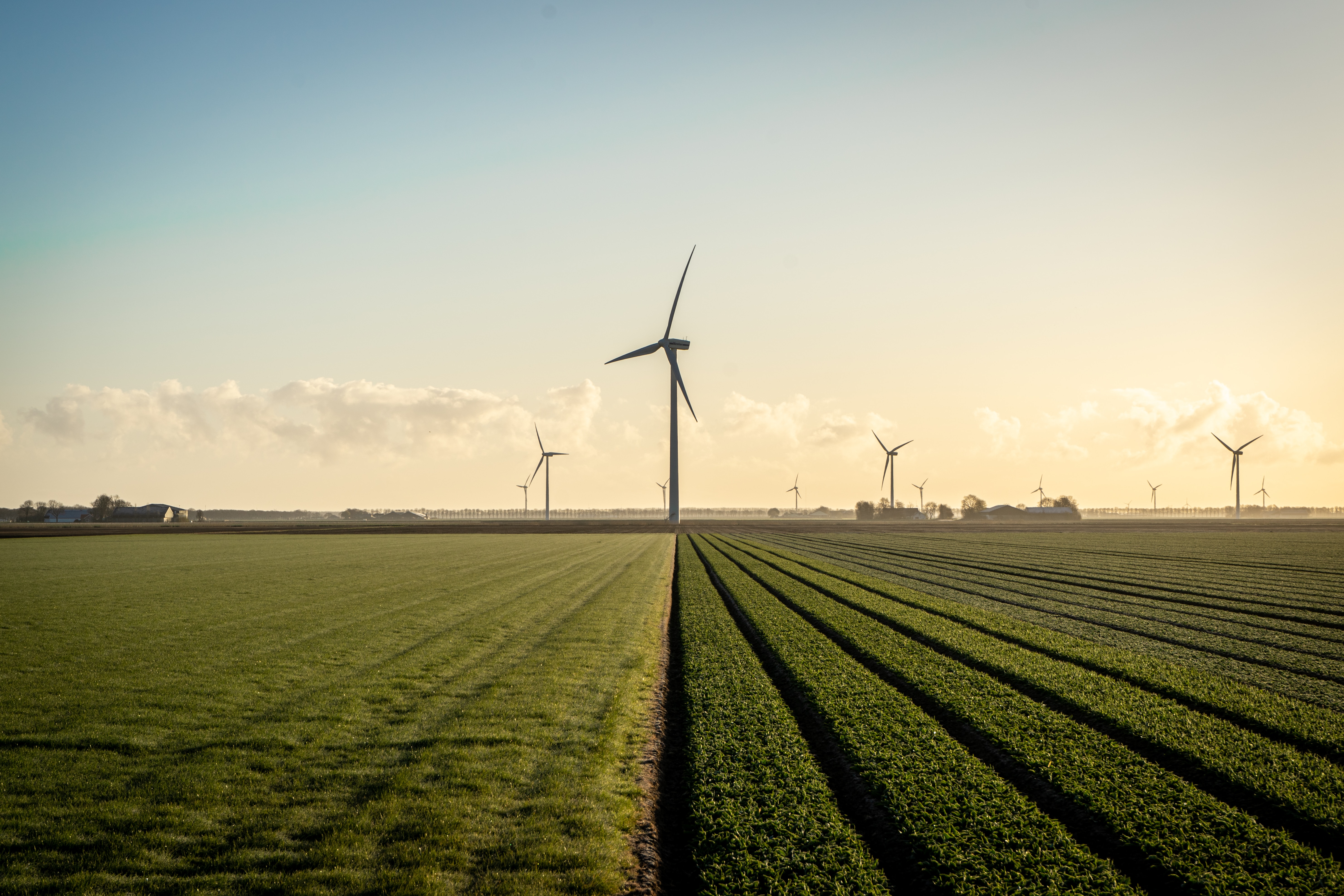They can be more than 3 times more efficient than a gas boiler!
Air source heat pumps are a revolutionary new type of low-carbon heating.
They have clever technology that extracts the warmth from the air outside – even during the winter – and then uses it to keep things cosy and warm inside.
They’re the green future…
A heat pump works differently to a gas boiler. It uses the warmth found in the air outside of your home – plus a bit of electricity – to supply your home with all the heating and hot water it needs.
When it’s installed in an energy-efficient and well insulated house, an air source heat pump is more environmentally friendly than a gas-powered boiler.
That’s good news for your carbon footprint – and for the UK’s progress to Net Zero too.
How do Air Source Heat Pumps Work?
Air source heat pumps use the same kind of technology that keeps a fridge or freezer cool – but in reverse!
The pump pulls in air from outside, then uses it to heat a special refrigerant liquid. As it warms up, the liquid turns into gas.
This gas is compressed to increase its temperature – and provide lots of lovely heat for your home.
Once the gas cools down, it becomes liquid again and gets re-used at the start of the cycle.
The whole process only uses electricity and even works when it’s as cold as -15°C during the winter.

The pros and cons of air source heat pumps:
What’s great:
- They can heat your home more cost efficiently than a hot water boiler system.
- Much better for the environment – cutting your home’s CO2 emissions and improving local air quality.
- Affordable thanks to 0% VAT, plus government grants of £7,500 in England and Wales – and up to £7,500 in Scotland.
- Some models can be used with solar panels for a more self-sufficient system.
What can be a challenge:
- Heat pumps are more expensive to buy than gas boilers, although government support is available.
- Some properties won’t have the right space, access or surroundings to install a heat pump.
- To get the best efficiency from heat pumps, your home will need to retain a lot of its heat through good insulation.
- Installing a heat pump might involve the cost and disruption of making changes to your house – including bigger central heating pipes and radiators.
There is no charge for a survey and quotation.
How much will it cost?
Obviously, every installation is unique and we want to make sure you get the most system for the best price. We always provide a competitive quote.

